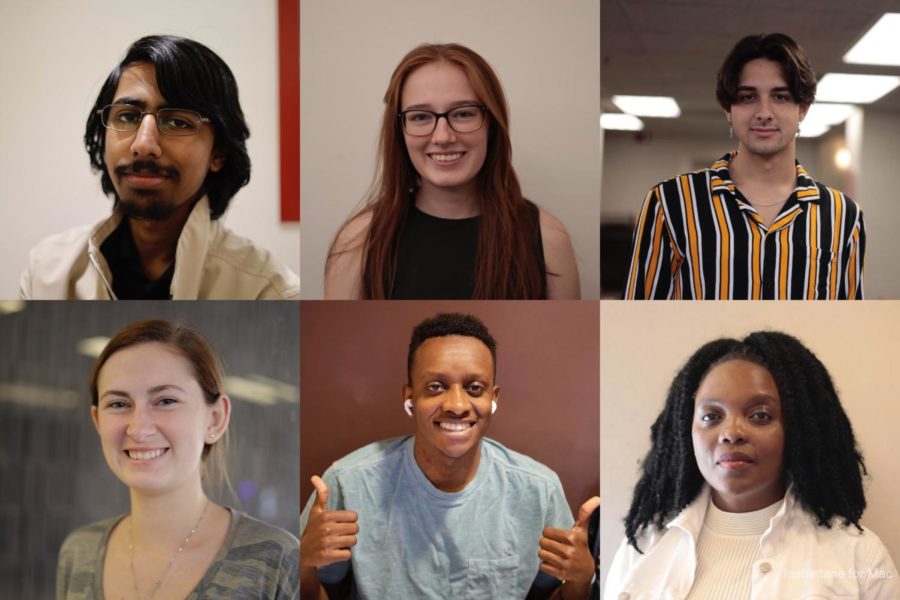- News
- News / Politics And Administration
- News / Politics And Administration / Campus
- News / Student Life
- Politics
Journalism class asks Cyclones will they vote in the midterm election?
Six of the students interviewed by the journalism class on Oct. 25. The class included Madison Bierl, Mackenzie Bodell, Emma Ellsworth, Charlie Gruhn, Samantha Mori, Eva Newland, Mikala Niemeier, Lauryn Schieffer, Whitney Schlotfeld, Anthony Smith, Kate Stangel, Thomas Turner and Brielle Tuttle.
November 6, 2022
Editor’s note: The student response information was gathered by students in a journalism class taught by Deni Chamberlin in the Greenlee School of Journalism. The information regarding the project was reported by Katherine Kealey.
A journalism class at Iowa State set out to ask students whether or not they will be voting in the 2022 midterm election Nov. 8, receiving responses ranging from students not knowing the candidates to making voting a family tradition.
Iowa State students voted at higher rates than the average college student in the 2016 election and voted in record-breaking numbers in 2020.
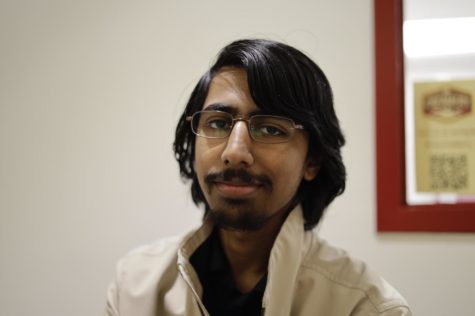
Ramesh Rohan said he plans on voting because it is an opportunity for people to interact with the government.
“Elections shape our government,” Rohan said. “… I’m not saying there aren’t like systematic problems that make elections not necessarily mean as much as they could … in general, the best way that any citizen can really get involved is to vote and to show activism to speak on important issues.”
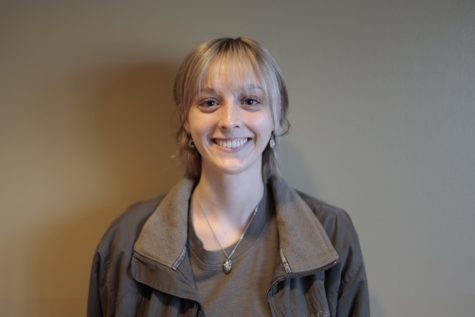
Haley Curtis said she believes it is unfair that people have no say on who sits on the Supreme Court. Curtis said as a person with female anatomy; she is going to ensure her voice and rights are represented on Nov. 8.
“I think that if that is like the supreme law of the land, I don’t understand why the President appoints them, and when we get to vote on kind of every other prominent person in politics at least we get some say, but we don’t get any say in the Supreme Court.”
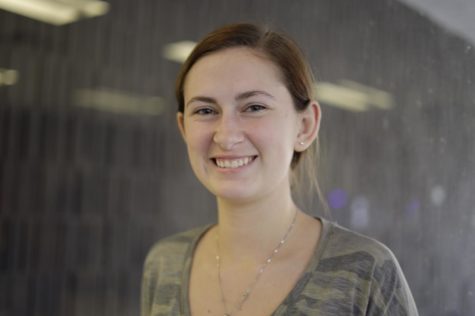
“I’m voting this Sunday, I think … I’m going with my family so we’re all voting together,” Mckenzie Kennis said. “We usually always do a family vote together, so we’ll all go down … and take a vote together.”
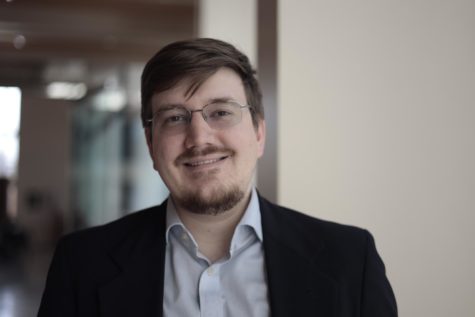
Alexander Dennis said one vote is not going to swing an election in most cases, but voting is his own way of shaping what he thinks the world should be like.
“I have voted every election since I’ve become eligible to vote,” Dennis said. “I feel like it’s kind of part of being American.” You’re supposed to go out there and make your voice be heard, so that’s why I vote.”
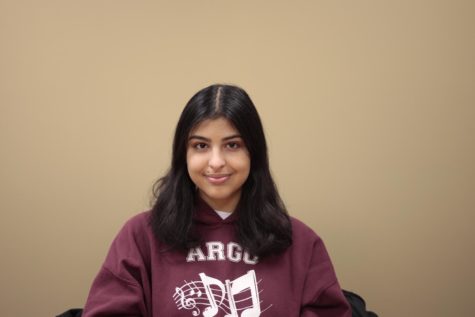
Brianna Rivera said she probably would not vote because she would have to get and fill out an absentee ballot since she lives away from her home, which she said is a lot of work.
“I think if there was a way to like to research candidates so you don’t have to go through all those extra research work to actually see like who they side with [and] what their values are, cause there’s so many different candidates on the ballot and sometimes you just don’t even know what’s what,” Rivera said. “So you either pick blue or red and that’s gonna be what you go with.”
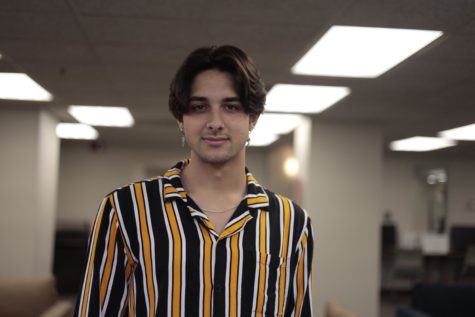
Aidan Sorenson said he feels he has an obligation to vote, and it is important for everyone’s voices to be heard.
“I have to get an absentee ballot, which is a little annoying, but it’s nothing too difficult,” Sorenson said. “There’s so many people that a singular vote won’t make that big of a difference, but you know, if everyone has that mentality, it definitely wouldn’t be a good thing.”
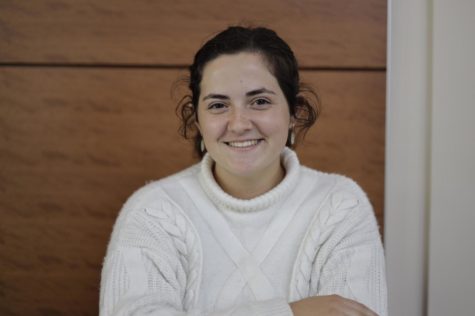
Jocelyn Pocernich said this would be her first time voting, but it is an important task because it shows what she wants to see in her community.
“I am definitely looking at women’s rights issues…I feel like the presidential election is definitely important, and it gets a lot of the hype, but the midterms are a lot more important than we realize,” Pocernich said. “Because those are the people who make the everyday decisions. The president has a lot of power in the United States, but the midterms are the people who make the smaller decisions that affect our daily lives.”
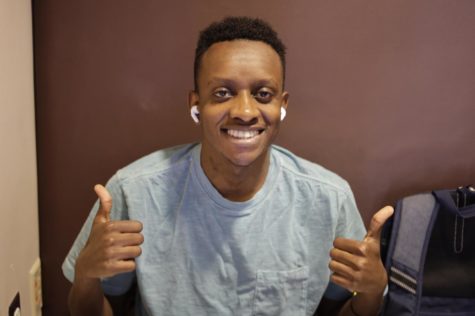
Lwembo Mwenyi said he is not registered to vote but is working on updating that.
“I feel like the last couple of years I just really was motivated about voting when Trump was in power,” Mwenyi said. “I didn’t like that guy much, but now I feel like everything seems to be going great. We have the loan forgiveness, we have all these things going on. I’m not really Democrat or anything, but I guess the stuff that’s been going on right now sounds like it’s been going okay.”
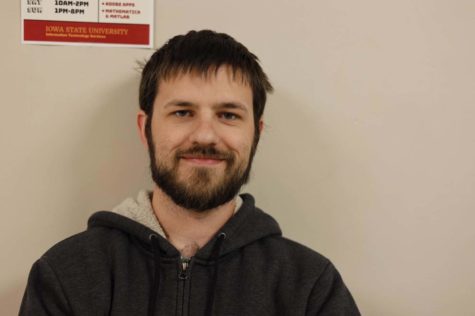
“I do plan to vote, I believe it is the civic duty for all Americans to do,” Mitchell Oleson said. “To get their voices heard and it’s important in our history. Not all countries and people have this option. I would like to believe that how I vote will help determine laws and alterations with the government to come into fashion.”
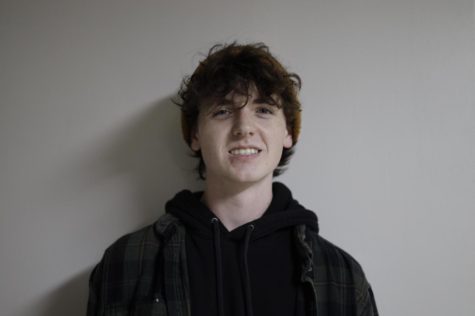
Marshall Vanoort said he does not plan on voting in this election.
“I haven’t really researched any of the candidates so I feel like I don’t have any worthwhile things to vote about…,” Vanoort said. “I’m not sure if anything really could [motivate me to vote], I think I would have to make the decision personally to look more into politics to decide to vote.”
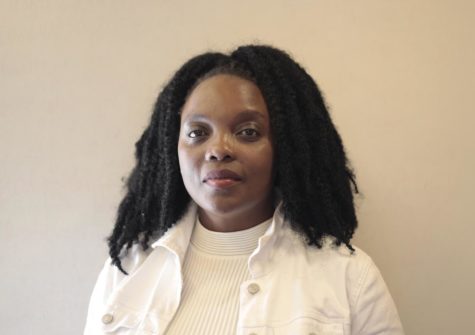
Annie Vwananji Banda said, unfortunately, she can not vote as an international student but would love to.
“Sometimes they get frustrated that whatever they vote for, they don’t get to be implemented because sometimes politicians they come to your place when they want your vote, but when they’re in office they don’t,” Banda said. “They don’t tend to look at the welfare of the people at the bottom so people get frustrated.”
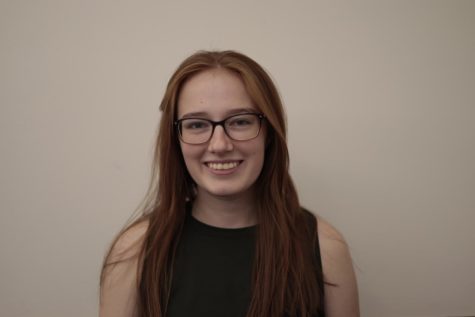
Kate Gera said voting for local judges is also important because they make decisions, especially since the overturning of Roe v. Wade.
“Even though it’s not a presidential election year, it’s still very important to vote for your local elections because they will decide a lot about what happens within your own community and may even have a greater effect on your life than the presidential election,” Gera said.
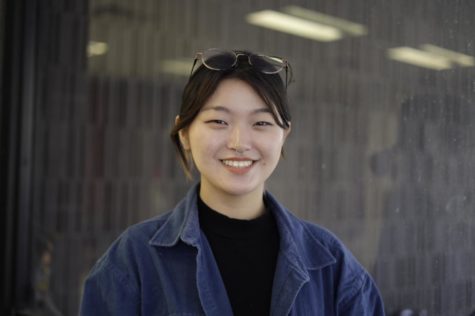
Eugenia Park is from Texas, so she said she does not think she would be able to vote in Iowa. Individuals can register to vote in Iowa on Election Day. They will need to show identification and proof of residency, such as mail with an Ames address, or students can show their Access Plus page.
“I would research the candidate …” Park said. “Also, the world’s changing, so, like, I definitely kind of need to leave my mark on it as well.”
Behind the scenes
Interviews were conducted Oct. 25 by Madison Bierl, Mackenzie Bodell, Emma Ellsworth, Charlie Gruhn, Samantha Mori, Eva Newland, Mikala Niemeier, Lauryn Schieffer, Whitney Schlotfeld, Anthony Smith, Kate Stangel, Thomas Turner and Brielle Tuttle.
Associate Professor for the Greenlee School of Journalism Deni Chamberlin came into class one day and asked her class why they think young voters turn out at lower rates and whether or not it makes a difference to vote.
After a class discussion and brainstorming session, the students decided to do a project going out to ask students if they planned to vote and why. Each student had to talk to five people.
“I know it is a primarily white campus, but we need to hear from as many voices as possible,” Chamberlin said. “Voices that aren’t just like us. I didn’t want them to just interview other journalism students.”
Chamberlin advised her students to visit cafes and various buildings across campus to find different populations of student voters.
“You are going to get different people at the business building than you are at The Center,” Chamberlin said. “They are all going to be really different, so broaden the pool of people you talk to.”
Students in Chamberlin’s class all shot the photos with the same lens and aperture. Even though the photos were shot similarly, Chamberlin said she and her class noticed how broad of responses they received.
“When we were talking about it in class, the general consensus was there is a lot at stake even though this is a midterm,” Chamberlin said. “We had a discussion that our lives are personally probably more affected by who is in the state House down in Des Moines…And then they heard some of their people say the same thing too.”

